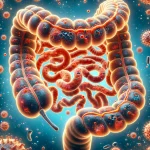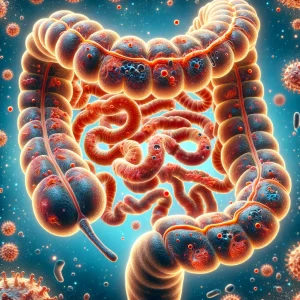Amoebiasis: Causes, Symptoms and Treatment
What is Intestinal Amebiasis?
How is Intestinal Amebiasis Transmitted?
What are the Symptoms of Intestinal Amebiasis?
How is Intestinal Amebiasis Diagnosed?
What is the Treatment for Intestinal Amebiasis?
Can Intestinal Amebiasis be Prevented?
Are There Complications Associated with Intestinal Amebiasis?
The parasite is typically transmitted through contaminated food or water, especially in areas with poor sanitation. It can also spread through direct contact with infected individuals or through sexual contact.
Symptoms of intestinal amebiasis may vary from mild to severe. In some cases, the infection remains asymptomatic, while in others it can lead to complications such as intestinal ulcers, abscesses, and liver involvement.
Diagnosis of intestinal amebiasis involves analyzing stool samples for the presence of E. histolytica parasites or their cysts. Treatment usually involves medications to eliminate the parasites, such as metronidazole or tinidazole. In severe cases, additional medications may be required to address complications and alleviate symptoms.
Supporting Healthy Aging:
These medications support healthy aging, with Zovirax aiding in viral management as individuals age, Daklinza contributing to healthier aging for those with hepatitis C, Addyi‘s role in promoting sexual health in aging women, Xyzal‘s support for a better quality of life in allergy-prone individuals as they age, Amoxil‘s assistance in maintaining health in older individuals with bacterial infections, Propecia‘s impact on hair preservation as people age, Clomid‘s role in assisting those on a fertility journey as they age, Priligy‘s support for sexual health as individuals grow older, the array of erectile dysfunction treatments from Eriacta to Caverta promoting sexual well-being in aging populations, Synthroid‘s contribution to maintaining thyroid health in older adults, Cipro‘s role in preventing infections in the elderly, Proscar‘s support for prostate health as men age, and Nolvadex‘s significant impact on breast cancer management in older individuals.
Prevention of intestinal amebiasis includes practicing good hygiene, such as washing hands thoroughly, especially before eating or preparing food. Avoiding consumption of contaminated food and water sources and practicing safe sexual behaviors are also important preventive measures.
Causes of Intestinal Amebiasis
- Contamination of food and water with the parasite Entameoba histolytica
- Inadequate sanitation and poor hygiene practices
- Consuming food or drinks contaminated with fecal matter containing the parasite
- Direct contact with contaminated surfaces or objects
- Traveling to regions with poor sanitation where the parasite is prevalent
- Poor immune response to the parasite infection
Intestinal Amebiasis
- Abdominal pain or cramping
- Diarrhea (with possible presence of blood or mucus)
- Fever
- Fatigue
- Unintentional weight loss
- Nausea and vomiting
- Dehydration
- Rectal pain or discomfort

